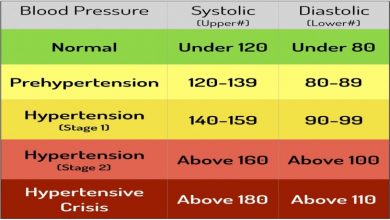
Reducing diastolic blood pressure is important for the health of your heart. This level of elevated blood pressure can lead to an increased risk of heart failure, stroke, and other cardiovascular issues. If your diastolic reading is elevated, your physician can develop a treatment plan to reduce it. This plan should address all of your risk factors, including lifestyle and diet. Read on for more information.
There are several reasons to try to lower your diastolic blood pressure. One way is to avoid high blood pressure medications. Many people are trying to reduce their blood pressure, but it is important to know why these methods are important. This is because these medications work by lowering systolic blood levels. The main problem with these drugs is that they lower your overall blood pressure. Low diastolic levels may not be as harmful as high ones.
Despite this concern, the research has shown that intensively lowering diastolic blood pressure, the bottom number on blood pressure measurements, is not linked to a greater risk of heart attack or other adverse cardiovascular outcomes. This could have implications for the treatment of hypertension in the future. For now, lowering diastolic levels may be more effective for the health of older adults. Nonetheless, further research needs to be done before it becomes common practice.
Another new study has linked high diastolic blood pressure with an increased risk of heart attacks. The researchers looked at data from over 47,000 adult people, with a median age of 61 years and 77% women. They found that individuals with high diastolic pressure were at an increased risk of heart damage. Hence, lowering it should be considered if it is beneficial for your health.
Low diastolic blood pressure is associated with an increased risk of heart damage. However, it is important to remember that low diastolic pressure can result in an elevated risk of heart failure. For this reason, it is imperative to reduce the risk of heart attacks. Moreover, the research showed that reducing diastolic blood pressure may have significant benefits for the cardiovascular health of the individual.
In addition to lowering systolic blood pressure, a new study on lowering diastolic blood pressure has found its benefits. Both researchers emphasize that it is better to control both types of blood pressure. Although low diastolic pressure can also be harmful, the overall results are promising. They recommend that people with high diastolic blood pressure lower their systolic value.

Intense reduction in diastolic blood pressure does not appear to increase the risk of heart attacks in patients with high blood pressure. In fact, the results of the SPRINT study are promising. In addition, low diastolic pressure is associated with a reduced risk of heart damage and is the lowest indicator of systolic pressure. It is recommended for patients with heart problems and with a heart of normal size.
Researchers at Johns Hopkins University in Baltimore, Maryland concluded that lowering diastolic blood pressure has no proven benefit. The results of the SPRINT study are consistent with other studies that show that lowering diastolic blood pressure with a natural supplement Hafaz
may help high-risk patients. The results of the SPRINT study show that lowering diastolic pressure reduces the risk of heart attacks in people with heart disease.
A new study has found that lower diastolic blood pressure is associated with a lower risk of heart disease. The SPRINT study showed that intensive SBP reduction is beneficial. For example, doctors who have a target blood pressure of 140 mm Hg. Art., should focus on both indicators. It is not possible to successfully treat both types of high blood pressure. This is an inevitable and extremely important symptom of heart failure.
In addition, lower diastolic blood pressure is associated with a reduced risk of cardiovascular events. Patients are advised to lower their diastolic blood pressure to reduce their overall risk of heart disease. This study was based on a retrospective analysis of diastolic blood pressure. In this study, patients were treated with drugs that reduced the risk of cardiovascular events.

Be First to Comment